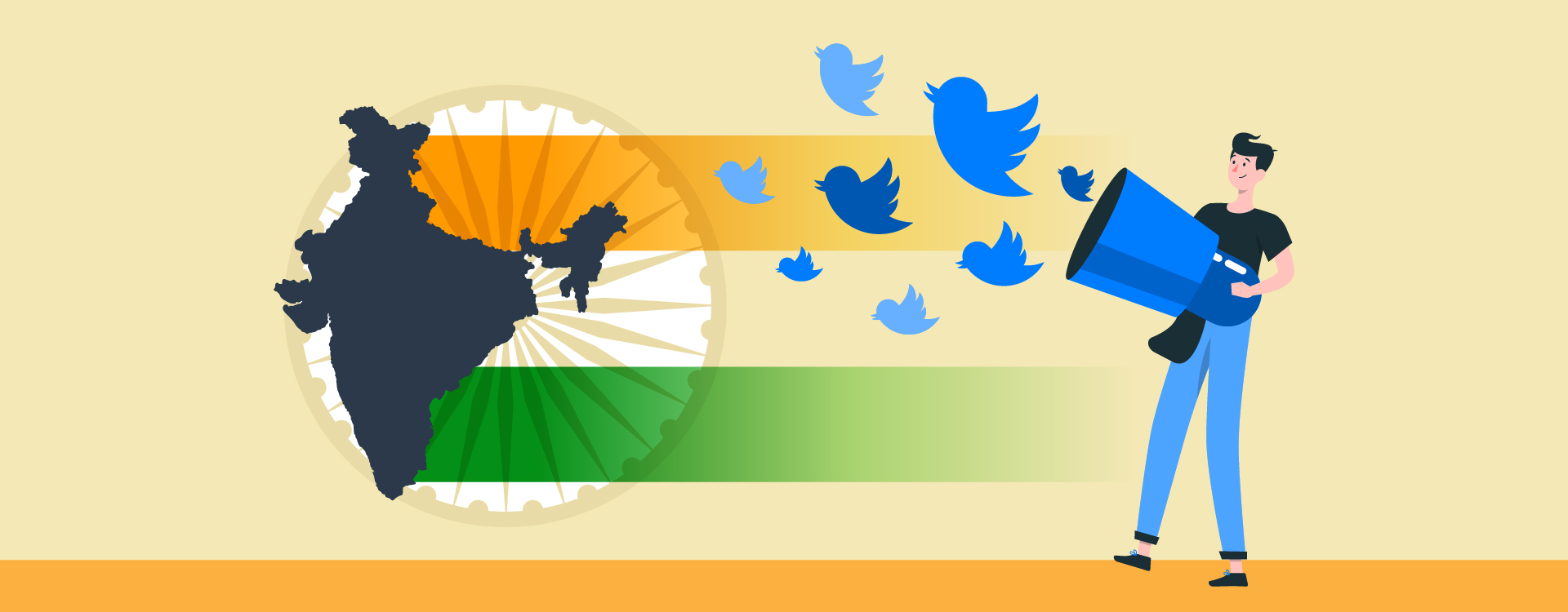In a world where social media has become the norm, where ‘social media woke’, ‘Instagram Twitter journalism’ and ‘trial by social media’ have taken over ethical and moral journalism, the standoff between the Government of India and American social media giant Twitter has become a matter of concern.
Though it may seem like an unnecessary war cry, it has reached the extent that Twitter could potentially be banned in India just like the government banned Tiktok and Chinese apps. The Government warned Twitter about their legal provisions and violations which could send their employees behind bars for several years. To this, Twitter replied that the ‘legal bans’ demanded by the Government were inconsistent with Indian laws. The question that now arises is whether Twitter will win the battle against the government? Whether free speech and transparency will thrive in the world’s largest democracy?
The Reason Behind the Twitter Standoff
Ministry of Electronics and Information Technology (MeitY) engaged in grandstanding with Twitter, which temporarily complied with the ‘legal demand’ to block over 250 accounts before restoring them. It provoked the Government to issue a ‘Non-compliance Notice’ and threaten legal action which could put Twitter at great risk of losing the exemption from legal liability and its executives could go to jail for seven years if charged with non-compliance.
A few weeks ago, several farmers protesting and rallying against the deregulation of Indian agriculture clashed with police in New Delhi creating chaos on January 26, Indian Republic Day. The netizens took to Twitter, with posts flooding from both sides, each giving its narrative. Claiming that certain accounts were propagating misinformation and false narratives on the farmer protests, the Government asked Twitter to block 1178 accounts. They objected to the hashtag ‘Farmers’ Genocide’ and claimed that many of these Twitter handles were backed by ‘Khalistanis’ and Pakistan. Twitter blocked 500 accounts listed by the Government but left the others alone including media, journalists, politicians and activists because according to Twitter, the order was ‘inconsistent with Indian laws’.
In a virtual meeting between government officials and Twitter’s executives in the US, the Government declared that as an intermediary doing business in India, Twitter must comply with Indian laws. However, banning Twitter in India is not that easy.
Emergency Internet Laws
The Information Technology Act of 2000 is not transparent and outdated. Section 69A gives the government power to deny Internet access and block citizens without any explanation or a fair hearing to the victims who are not even told the offence they are accused of. The law was upheld as it was assumed there were sufficient checks, provisions for hearing and proper decision making when it comes to blocking people and removing offensive posts from social media platforms. Twitter’s AI can also filter and remove offensive content according to its rules. But the question arises, if censorship should be allowed on platforms like Twitter that enhance and propagate the concept of free speech and expression. Netizens should know why the content was removed or people were blocked. Such platforms call for higher accountability and responsibility.
What is in it for Twitter and other platforms?
Social Media platforms need to have a proper hearing and discussion before removing content. People need updated and detailed laws that coincide with both the government’s and company’s agenda to avoid extreme cases of violence and conduct more careful check of the content that is posted. The Information Technology Guidelines for Intermediaries and Digital Media Ethics Code Rules, 2021 was formed to tackle issues like sensationalism of fake news, abuse of these platforms to share morphed images of women, revenge porn and other explicit content. Twitter, Facebook and YouTube must take down defamatory and controversial messages within a specific time-frame, set up grievance redressal mechanisms as well as assist government agencies in the investigation. The rules enable the identification of the first originator of the information for prevention, detection, investigation, prosecution or punishment of an offence related to the sovereignty and integrity of India, the security of the State, friendly relations with foreign states, or public order, or of incitement to an offence relating to the above or in relation with rape, sexually explicit material or child sexual abuse material, punishable with imprisonment for a term of not less than five years. The focus should be on creating a platform for people to voice their opinions while complying with a written set of guidelines to avoid people opting out of Twitter or any such platforms and resulting in a lesser user base.




